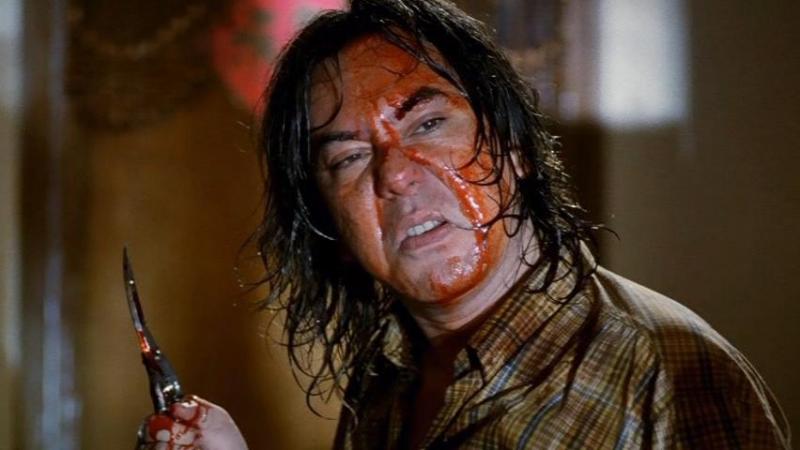Little Red Wagon Repairman
MFOMBSoPGA
As a lover of Horror Films Outbreak has always been the scariest film ever and I think you find it in the Action/Drama section. A virus like that concerns me more than any Monster.



Gwyneth Paltrow dies a horrible death.

I recommend the book called, "Hot Zone," by Michael Chriton
http://www.businessinsider.com/ebola-virus-in-us-dallas-dont-panic-2014-9Here's Why You Shouldn't Panic About The First US Case Of Ebola
With the first case of Ebola diagnosed in the US just announced by the CDC, there's a big fear the virus could threaten human health here in the states. The idea is terrifying, not only because the symptoms are horrible, but because the current outbreak has a 71% mortality rate.
The current outbreak of the deadly virus, which is thought to originate in bats, has killed more than 3,000 and infected 6,574 people in West Africa. Symptoms include fever, vomiting, diarrhea, and often bleeding inside and outside the body.
That said, here's why you shouldn't panic about it being in US:
1. We know how to control the virus — what precautions need to be taken when treating someone with Ebola.
2. It doesn't spread effectively through humans when properly contained — it's not very contagious and doesn't spread through the air.
3. Our healthcare system is strong enough to care for the few cases that show up.
US government officials and health experts say Ebola will not spread through the US like it has in West Africa.
Though patients may sporadically arrive, and potentially even infect others they are in close contact with in the US, our healthcare system is strong enough that an epidemic is unlikely to grow from these sporadic instances.
"[T]he plain truth is that we can stop Ebola," Dr. Tom Frieden, director of the U.S. Centers for Disease Control and Prevention, told ABC's "This Week." "We know how to control it."
Don't Panic: The Virus Doesn't Spread Very Efficiently
Ebola "doesn't spread very efficiently through humans," Dr. Amesh Adalja, an infectious disease specialist from the University of Pittsburgh Medical Center and the Center for Health Security, told Business Insider.
While the virus is deadly, it's not very contagious. Unlike the common cold or the flu, which spread through airborne droplets, Ebola can only spread through contact with bodily fluids, like blood, vomit, and diarrhea.
Adalja also points out that Ebola is less contagious than Middle East Respiratory Syndrome, or MERS, which recently arrived in the US but was contained. There were no reports of secondary cases, which are new cases spread by the individuals who had arrived to the country already infected.
"Ebola is a very rare disease that infects a very small number of people," says Adalja. "It doesn't have that same type of burden of illness of other diseases like malaria, tuberculosis, HIV."
Why The US Is Different
Any American patients with Ebola are being treated using special precautions.
One of the main reasons the virus has killed so many people in West Africa is because healthcare infrastructure in the region is extremely limited, meaning that hospitals — where they even exist — are understaffed and don't have the same technology as those in the United States. That means the monitoring and isolation techniques that are relatively routine in many modern hospitals often can't be implemented.
That being said, the Ebola outbreak in West Africa is cause for international concern. Places like Liberia don't have the healthcare systems and monitoring of the CDC that we do, and their government has all but broken down. Things aren't looking good there, but even as the virus spills over national borders, it's not likely to take root in the US.
Don't Believe Everything You See In The Movies
Part of the fear about an Ebola outbreak in the US stems from how the virus has been treated by Hollywood and the media.
"Ebola has a mystique about it because the way that it has been treated in fiction," Adalja says.
He specifically referenced the 1995 movie "Outbreak," starring Cuba Gooding, Jr., which features a fictional Ebola-like virus. Richard Preston's book "The Hot Zone," a terrifying nonfiction thriller that inspired the movie, is another well-known reference.
While fictional stories just aren't true-to-life, there are a few legitimately scary things about Ebola.
The symptoms are viscerally horrifying, and treatments and vaccines against the disease don't exist at this time.
And because scientists aren't totally sure how the virus outbreaks jump to humans, there is also the fear of the unknown. "The outbreaks are mysterious, they appear out of nowhere, they're explosive and then they disappear," says Adalja.
All of these factors work to fuel a panic mentality. But in the US, Canada, Europe, and most countries with well-developed health care systems, Ebola poses almost no real risk because patients can be isolated and treated without spreading the virus.
